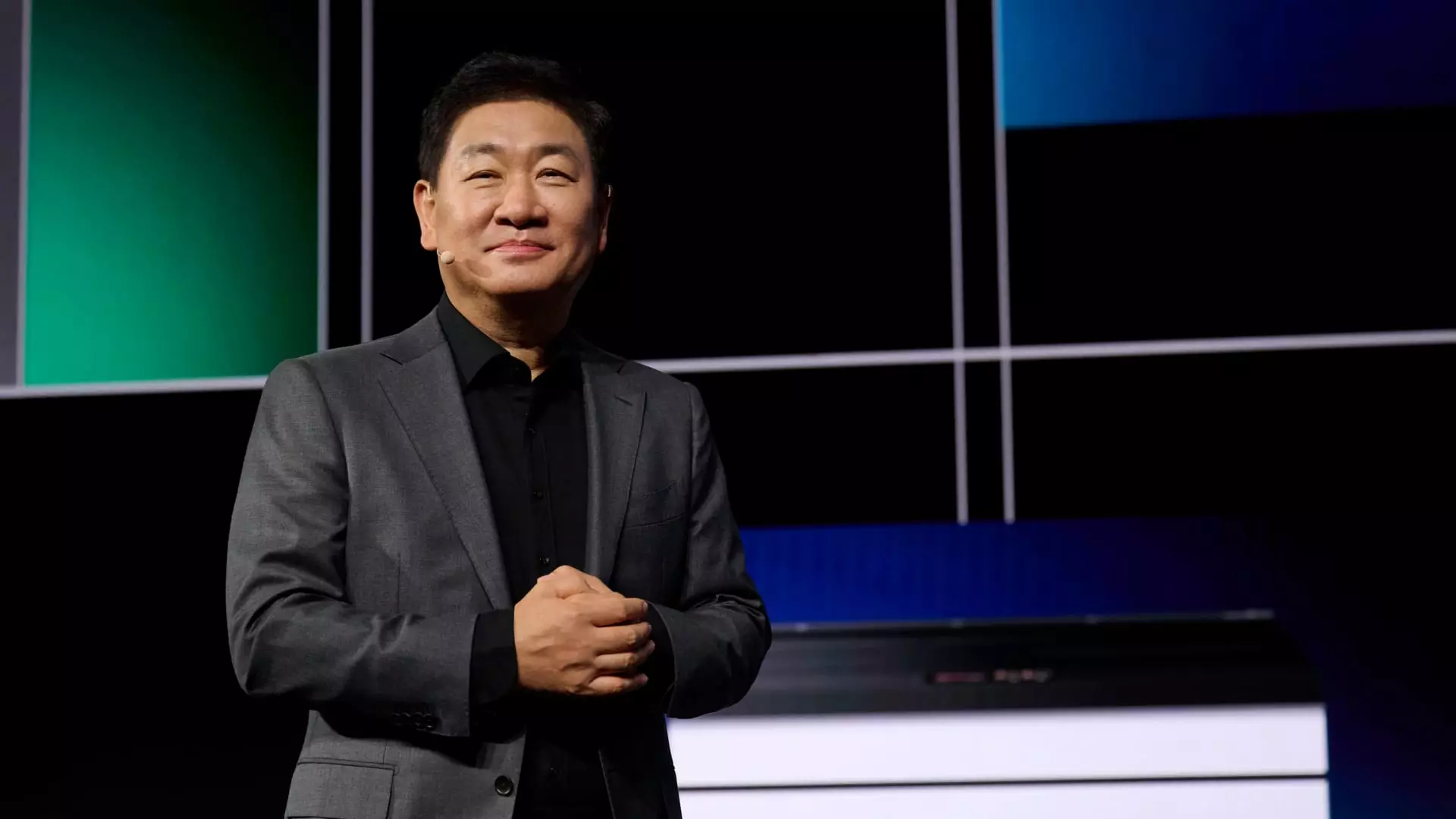Samsung Electronics, a titan in the consumer electronics sector, is strategically repositioning itself to meet the evolving demands of the technological landscape. As the world shifts towards a more integrated and intelligent ecosystem, Samsung aims to enhance its on-device AI capabilities. The company is adeptly responding to forecasts indicating a modest growth of approximately 3% in the global consumer electronics market by 2025. In a recent interview, Jong-Hee Han, CEO of Samsung Electronics, expressed confidence that the company’s mobile device segment would outperform the market with an anticipated growth of 4% to 5% for the current year.
Samsung’s diverse product portfolio—including smartphones, televisions, and home appliances—places it in a unique position to capitalize on this trend. The company’s strategy is not merely to compete on price but to provide innovative features that leverage artificial intelligence. By integrating AI chips into appliances like refrigerators and washing machines, Samsung aims to create smart homes, thus distinguishing itself in a crowded marketplace.
The increasing incorporation of artificial intelligence across Samsung’s flagship devices, including the Galaxy S24 series, signifies an essential pivot toward enhancing user experience. Real-time translation capabilities and voice recognition are just a few examples of how Samsung is striving to make its devices more intuitive, addressing consumer needs in an innovative way. This is especially critical as the competition intensifies, particularly from Chinese brands like Huawei and Xiaomi, which have begun to dominate the high-end smartphone market with lower-priced alternatives.
Jong-Hee Han’s perspective that competition is beneficial—not only for Samsung but also for consumers—highlights the necessity for continual advancement and differentiation in product offerings. Samsung’s commitment to improving security features and convenience as a counter-strategy against price cuts positions it favorably for sustained market relevance.
In November, Samsung announced a significant leadership change, appointing Jun Young-hyun as co-CEO in a bid to navigate the challenges within its semiconductor division. Once a front-runner in memory chip technology, Samsung now faces intensified competition, particularly from SK Hynix, especially in the realm of high bandwidth memory (HBM) essential for AI applications. This shift underscores the importance of strategic leadership in a rapidly changing industry where technological influence directly impacts market standing.
As the company prepares to divulge its quarterly results, projections indicate an operating profit of 8.2 trillion won ($5.6 billion) for the December quarter, reflecting a rebound from previous quarters but still falling short of earlier highs. There is mounting pressure on the new leadership to not only stabilize profits but also to drive innovation in response to competitive realities.
The financial markets have reacted with volatility as Samsung works to navigate its way through recent challenges. After a troubling year that saw stocks dive 32%, investors are cautiously optimistic about the introduction of a “value-up” plan to enhance shareholder returns. Centered around a large-scale share buyback valued at 10 trillion won, this initiative aims to stabilize share prices amidst uncertainty in the tech landscape.
However, experts remain wary of potential pitfalls, including delays in securing necessary approvals for HBM chips from Nvidia, which could adversely affect growth ambitions. Analyst perspectives suggest that while Samsung has the framework for recovery, execution remains paramount. Assessing market sentiment, investors are eager for tangible advancements in technology and strategy that could reinstate Samsung’s competitive edge.
Samsung Electronics finds itself at a critical juncture marked by both opportunity and challenge. As it endeavors to enhance its product offerings through artificial intelligence, the company must adeptly navigate fierce competition and industry evolution. With strategic leadership changes, innovative AI integrations, and proactive shareholder initiatives, Samsung is poised to reclaim its status as a leader in the consumer electronics domain. The path ahead will not be without obstacles, but with a strong focus on innovation and customer-centric strategies, Samsung can leverage its capabilities to meet future demands and restore investor confidence.

